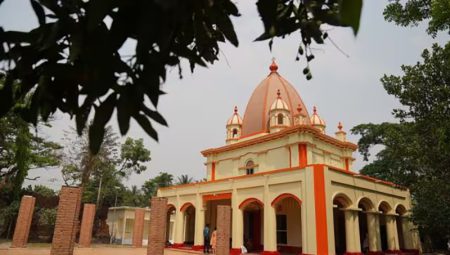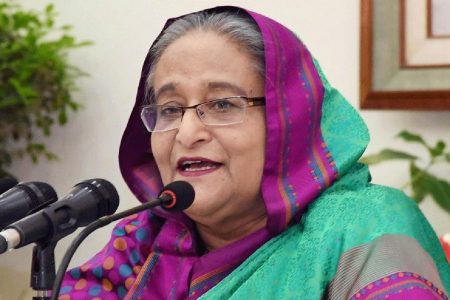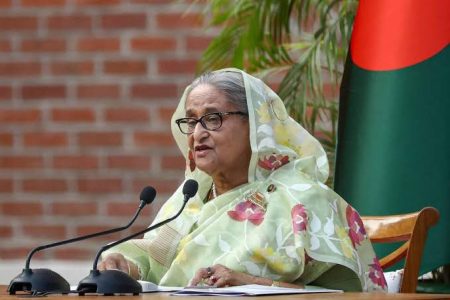
The United States has firmly denied any involvement in the ongoing political crisis in Bangladesh, which has seen widespread protests and resulted in the deaths of hundreds of people. White House Press Secretary Karine Jean-Pierre addressed the issue during a media briefing on Monday, where she categorically refuted the allegations.
“We have had no involvement at all,” Jean-Pierre stated. “Any reports or rumors suggesting that the United States government was involved in these events are simply false. That is not true.”
Jean-Pierre emphasized that only its own people should determine Bangladesh’s future. “This is a choice made by and for the Bangladeshi people.” So we believe the Bangladeshi people should decide the future of their government. Any allegations to the contrary are simply untrue,” she reiterated.
Jean-Pierre assured that the U.S. government is closely monitoring the situation following the protests outside the White House in response to recent attacks on Hindus in Bangladesh. “We are certainly going to continue monitoring the situation. I don’t have anything else to say or add beyond that,” she noted.
She further added that President Biden has been consistent in addressing human rights issues, both publicly and privately. “When it comes to any type of human rights issue, the President has been very consistent in speaking loud and clear both in public and privately, and he will continue to do so.” But I don’t have any specific engagement to speak to at this time,” Jean-Pierre said.
Bangladesh is currently experiencing a volatile political environment, with Prime Minister Sheikh Hasina stepping down from her position on August 5 amidst growing protests. Initially sparked by student-led demonstrations demanding an end to a quota system for government jobs, these protests have since escalated into broader anti-government demonstrations.
In response to the situation in Bangladesh, a large group of protesters gathered outside the White House last Friday, rallying against the reported violence targeting minority Hindus and other groups in the country following the ousting of former Prime Minister Sheikh Hasina. The protesters, carrying American and Bangladeshi flags, held signs calling for the protection of Bangladeshi minorities and chanted slogans demanding justice and peace.
The protest attracted activists from various human rights organizations, as well as members of the Bangladeshi diaspora and Indian-American Hindu allies from Washington, Maryland, Virginia, and New York.
Indian Prime Minister Narendra Modi also addressed the situation, calling for the “safety and protection” of Hindus and other minorities in Bangladesh. On Thursday, PM Modi posted a message on X (formerly Twitter) expressing his best wishes to Professor Muhammad Yunus, who has taken on new responsibilities, and expressing hope for a return to normalcy in Bangladesh.
“My best wishes to Professor Muhammad Yunus as he assumes his new responsibilities. We hope for an early return to normalcy, ensuring the safety and protection of Hindus and all other minority communities. India remains committed to working with Bangladesh to fulfill the shared aspirations of both our peoples for peace, security, and development,” PM Modi stated.
The situation in Bangladesh has led thousands of Bangladeshi Hindus to flee to neighboring India in an effort to escape the violence. Hindus, who constitute about eight percent of Bangladesh’s population of 170 million, have traditionally supported Sheikh Hasina’s Awami League party. However, the party has faced significant backlash following violent clashes between anti-quota protesters and security forces in recent weeks.
Several U.S. leaders, including Republican Congressman Pat Fallon and Congressman Raja Krishnamoorthi, have also condemned the reported violence in Bangladesh, voicing their concerns over the treatment of minorities in the country.











